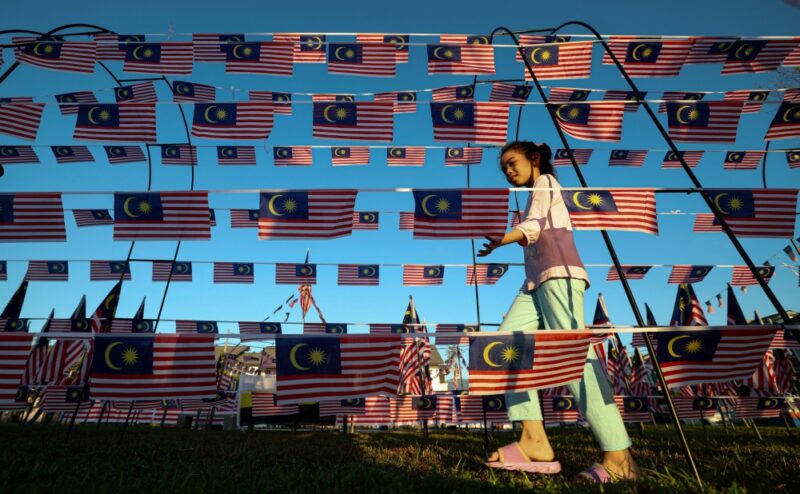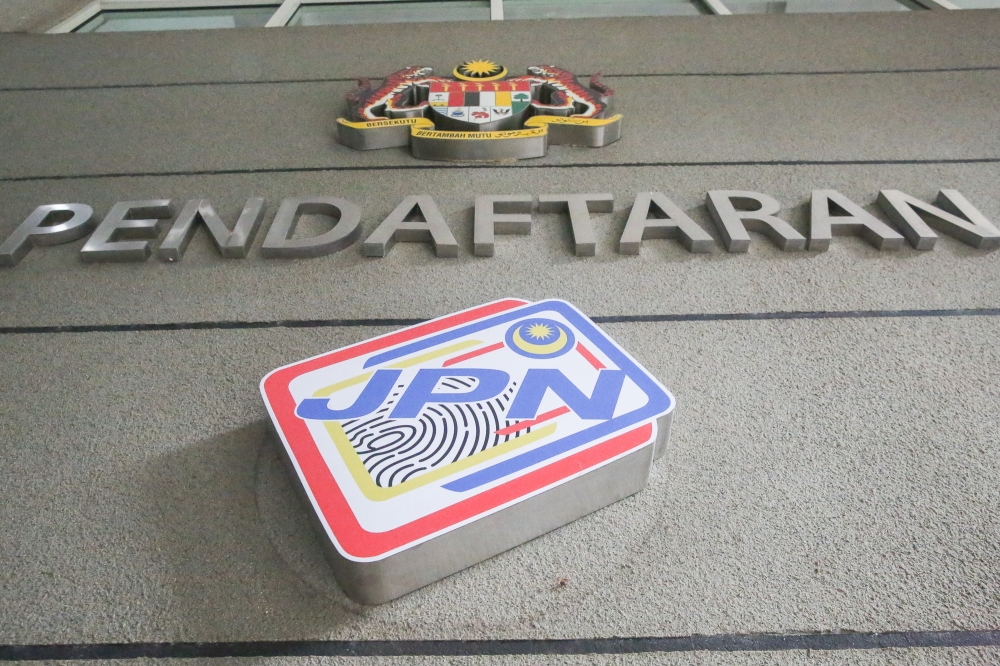KUALA LUMPUR, Nov 20 — One of the necessities crucial so as to qualify to be a Malaysian citizen is you need to be a particular person of fine character.
But who decides in case your character is “good” or not, and the way? And why do you need to be of “good character”?
If you by no means had to suppose about this earlier than, you in all probability don’t fall inside these three classes of these in search of to be referred to as Malaysians: Malaysian males’s international wives; these born in Malaysia earlier than Merdeka Day; or those that need to be a naturalised citizen.
For these three sorts or classes of citizenship functions (below the Federal Constitution’s Article 15(1), Article 16, Article 19), being of “good character” is one in every of the necessities you should fulfil.
Advertisement
The Malaysian authorities has in apply required the police to certify that a particular person making use of for citizenship has good conduct. — eNM pic
But what’s “good character”?
Advertisement
The Federal Constitution doesn’t truly outline the time period “good character”.
But the Malaysian authorities has in apply required the police to certify that a particular person making use of for citizenship has good conduct.
Here are some hints primarily based on the Home Ministry’s previous written parliamentary replies at the Dewan Rakyat:
In two separate written parliamentary replies on October 24 and November 18, 2019, the Home Ministry acknowledged the similar situation of “berkelakuan baik yang ditapis melalui tapisan keselamatan oleh Polis Diraja Malaysia” (good character as screened by way of safety vetting by the Royal Malaysia Police) as being amongst the situations for citizenship functions below Article 15(1), 16 and 19.
Apart from the requirement of differing size of years of keep in Malaysia earlier than making use of for citizenship in addition to being of fine character, Article 16 and Article 19 candidates have the further requirement of getting an elementary and satisfactory data of the Malay language respectively.
In a June 2012 written parliamentary reply to a query on whether or not the authorities might loosen up citizenship necessities for many who have lived right here over 20 years, the Home Ministry stated candidates need to have data of the Malay language and be of fine character.
“In this context, the applicant should have by no means been convicted of prison offences or have intention and conduct that may threaten or undermine the nation’s sovereignty, concord and safety.”
In quick: Having no prison data appears to be the benchmark set, a minimum of in accordance to parliamentary replies.

The Home Ministry additionally stated the awarding of Malaysian citizenship isn’t a proper that any foreigner who has fulfilled the necessities can demand for, however that it’s the Malaysian authorities’s highest award to foreigners who’ve lived in Malaysia in accordance to the interval acknowledged in the Federal Constitution. — Picture by Devan Manuel
Why is nice character wanted?
Again, the Home Ministry had in the previous given refined clues in Parliament about coverage issues which are taken under consideration when it decides on whether or not to approve or reject citizenship functions below Article 15(1), Article 16 and Article 19.
(These three classes would require citizenship candidates to first formally acquire a everlasting resident standing from the National Registration Department, earlier than they’ll even submit their citizenship functions. Those who had been born and lived in Malaysia all their lives since earlier than Merdeka can apply below Article 16, some additionally apply below Article 19 and which means that Article 19 isn’t solely utilized by those that are “foreigners”.)
In a June 13, 2012 written parliamentary reply to Beruas MP Datuk Ngeh Koo Ham’s query on why these born in Malaysia and having by no means been overseas had been refused Malaysian citizenship regardless of fulfilling the necessities in the Federal Constitution, the Home Ministry stated Malaysian citizenship isn’t automated for everlasting residents who’ve fulfilled the necessities however that it has to be utilized for at the NRD.
The Home Ministry additionally stated the awarding of Malaysian citizenship isn’t a proper that any foreigner who has fulfilled the necessities can demand for, however that it’s the Malaysian authorities’s highest award to foreigners who’ve lived in Malaysia in accordance to the interval acknowledged in the Federal Constitution.
The ministry additionally stated everlasting residents who fulfilled the primary necessities is not going to essentially be awarded Malaysian citizenship, stating: “Each software acquired can be scrutinised and given the applicable consideration by considering different components associated to the nation’s improvement, wellbeing and safety (pembangunan, kesejahteraan dan keselamatan negara).”
In a March 25, 2010 written reply to then Kulai MP Tan Sri Ong Ka Ting, the Home Ministry stated a activity drive arrange in 2009 had managed to resolve a backlog of 32,297 citizenship functions from 1997 to 2006, and confirmed it had acquired 14,054 functions below Article 15(1) and Article 19 from 2006 to 2009.
Among the explanation why some citizenship circumstances had been pending for thus lengthy, the Home Ministry stated it solely considers functions which had fulfilled constitutional necessities, and that there was restricted manpower to deal with the ever-increasing variety of functions, and in addition cited the need for every citizenship software to undergo the safety vetting course of “to guarantee the applicant is clear from any prison data”.
In that 2010 reply, the Home Ministry stated it had taken drastic steps to guarantee citizenship functions are processed inside a extra sensible interval for candidates, together with setting a buyer constitution for citizenship functions acquired from 2009 onwards to not exceed three years from the day that the NRD receives a full software.

While citizenship candidates have to self-declare their prison data in these varieties, the NRD and the Home Ministry would perform safety vetting by way of the police for these citizenship functions below Articles 15(1), 16 and 19. — Picture by Choo Choy May
Are there gaps in the ‘good character’ test?
Development of Human Resources for Rural Areas (DHRRA) Malaysia, a non-governmental organisation which has expertise serving to and dealing with 1000’s of stateless individuals (together with these born right here pre-Merdeka) to be Malaysians, had beforehand recognized the problem of being licensed to be of “good character”.
DHRRA had famous that the Home Ministry carries out safety checks on citizenship candidates’ backgrounds to be certain that their functions are real, and that getting a certificates of fine conduct is due to this fact required earlier than one can apply.
“However, in the absence of the definition of ‘good character’ in the Federal Constitution, all candidates with crime data is rejected, regardless of how petty the crime is or what number of years have lapsed since the crime was dedicated,” the organisation stated in its booklet Report: Statelessness in Malaysia.
In the NRD’s citizenship software kind for these in search of to be a naturalised citizen below Article 19 (in any other case generally known as Form C), there’s a part referred to as “Kelakuan” (character or conduct), with three questions together with whether or not the applicant has ever been convicted or discovered responsible of any offences; and whether or not the applicant has ever been detained in jail or in psychiatric establishments by way of courtroom orders.
Those who stated sure to these questions above would have to fill in particulars below the third query, particularly the offence, the effective quantity, the period of the sentence or detention, the nation concerned, and the whole of months or days of detention.
The very same questions are additionally contained in Form A, which is the citizenship software kind for these making use of below both Article 15(1), Article 16 or Article 16A.
While citizenship candidates have to self-declare their prison data in these varieties, the NRD and the Home Ministry would perform safety vetting by way of the police for these citizenship functions below Articles 15(1), 16 and 19.
This safety vetting is completed internally between these authorities our bodies with none involvement by the citizenship candidates, DHRRA beforehand informed eNews Malaysia.
On October 25, Home Minister Datuk Seri Saifuddin Nasution Ismail introduced a shorter safety vetting course of for citizenship functions following the introduction of an built-in safety vetting system between the NRD and the police, and stated the system would robotically reject functions of anybody concerned with an organisation thought-about harmful and a menace to public order, and those that had overstayed.
Based on the experiences of DHRRA’s neighborhood paralegals, DHRRA confirmed to eNews Malaysia lately that citizenship candidates who need to undergo safety screening could be rejected, even when the offences they dedicated had been minor offences and even when these prison circumstances had been so long as 15 years in the past.
In March 2014, a 71-year-old former plumber, R. Kolandavaloo, succeeded in his courtroom problem in opposition to the NRD’s September 29, 2011 resolution to reject his citizenship software by saying he was “not of fine character”. — File image by Farhan Najib
A narrative of a former plumber who needed to belong
In March 2014, a 71-year-old former plumber, R. Kolandavaloo, succeeded in his courtroom problem in opposition to the NRD’s September 29, 2011 resolution to reject his citizenship software by saying he was “not of fine character”.
Based on earlier information experiences by native information web site Malaysiakini, Kolandavaloo was born at the Klang Hospital in Selangor in 1943 and all his siblings are Malaysians, whereas his spouse and kids are all additionally Malaysians. He was staying in Malaysia with a everlasting resident standing.
He had been unsuccessful in his makes an attempt since 1983 to apply for citizenship and had in August 2010 made one other software and in March 2011 sat for the Malay language test, however in January 2013 acquired the NRD’s 2011 rejection letter of his software.
He had on February 28, 2013 filed the courtroom problem in opposition to the house minister, NRD director-general and the Malaysian authorities.
On March 19, 2014, native day by day The Star reported then High Court decide Datuk Zaleha Yusof as having informed the Attorney General’s Chambers which was representing the authorities: “Do not be too technical. You are coping with a human being. He is an previous man. That (offence) is greater than 40 years in the past. You have written to the police, who stated he had not dedicated the rest. Is that not sufficient for good character?”The decide, who determined that the man ought to be recognised as a Malaysian, was additionally quoted saying: “He didn’t cover that he was below restricted residence. Don’t you suppose that folks can change after 40 years?”
According to The Star, Kolandavaloo was convicted in 1965 and 1966 for theft and a minor offence the place he was imprisoned for six months and fined RM50, and that he was below restricted residence from 1966 to 1973 in Mukim Serendah, Ulu Selangor below police supervision.
He had beforehand been given a purple identification card — which denotes a particular person’s standing as a everlasting resident — in 1968 earlier than being given a brown identification card in 1979 due to his restricted residence and issued a purple identification card in 1983.
Kolandavaloo was quoted saying: “I stole hen and was jailed by the Klang Justice of the Peace’s courtroom in 1966. I didn’t commit any crime later and have become a good particular person.”
His lawyer M. Manoharan was quoted by The Star as having argued that he was not a ordinary offender and had fulfilled all different situations required below Article 16, together with having elementary data of the Malay language.
With the Malaysian authorities decreasing the safety screening course of for citizenship functions, DHRRA had hoped this may finally end in shorter processing time for the precise citizenship functions. — Picture by Firdaus Latif
Can Malaysia do it otherwise?
In its booklet carrying suggestions as of March 30, 2022 on statelessness, DHRRA really useful the Home Ministry or the NRD to present “administrative steering” on what the Federal Constitution’s time period “good character” means and its right interpretation to guarantee consistency.
When assessing “good character”, the nature of the applicant’s prison data also needs to be thought-about, DHRRA really useful in that booklet.
DHRRA informed eNews Malaysia that citizenship functions below Article 19 are at all times difficult, and that the Home Ministry would usually solely concern letters stating whether or not the functions have been profitable however with out stating any causes if there’s a rejection.
DHRRA stated the rejection letters then have to be introduced to the nearest NRD workplace to acquire data relating to the rejection.
When contacted, DHRRA stated the Home Ministry ought to present causes in official letters when it rejects citizenship functions, and also needs to present “clear commonplace working procedures (SOPs)” to the basic public on the interval of prison data which are taken under consideration.
“The Home Ministry additionally has to contemplate those that have data, however are of fine character for seven to 10 years,” it instructed to eNews Malaysia lately, when suggesting that those that haven’t any new prison data in recent times ought to be cleared for citizenship functions.
With the Malaysian authorities decreasing the safety screening course of for citizenship functions, DHRRA had hoped this may finally end in shorter processing time for the precise citizenship functions.
Based on DHRRA’s expertise to this point, Article 19 functions might take greater than 4 years earlier than a solution is given, whereas Article 15(1) and Article 16 functions might take one yr to course of at the shortest however might additionally go up to three years for a resolution to be made.








